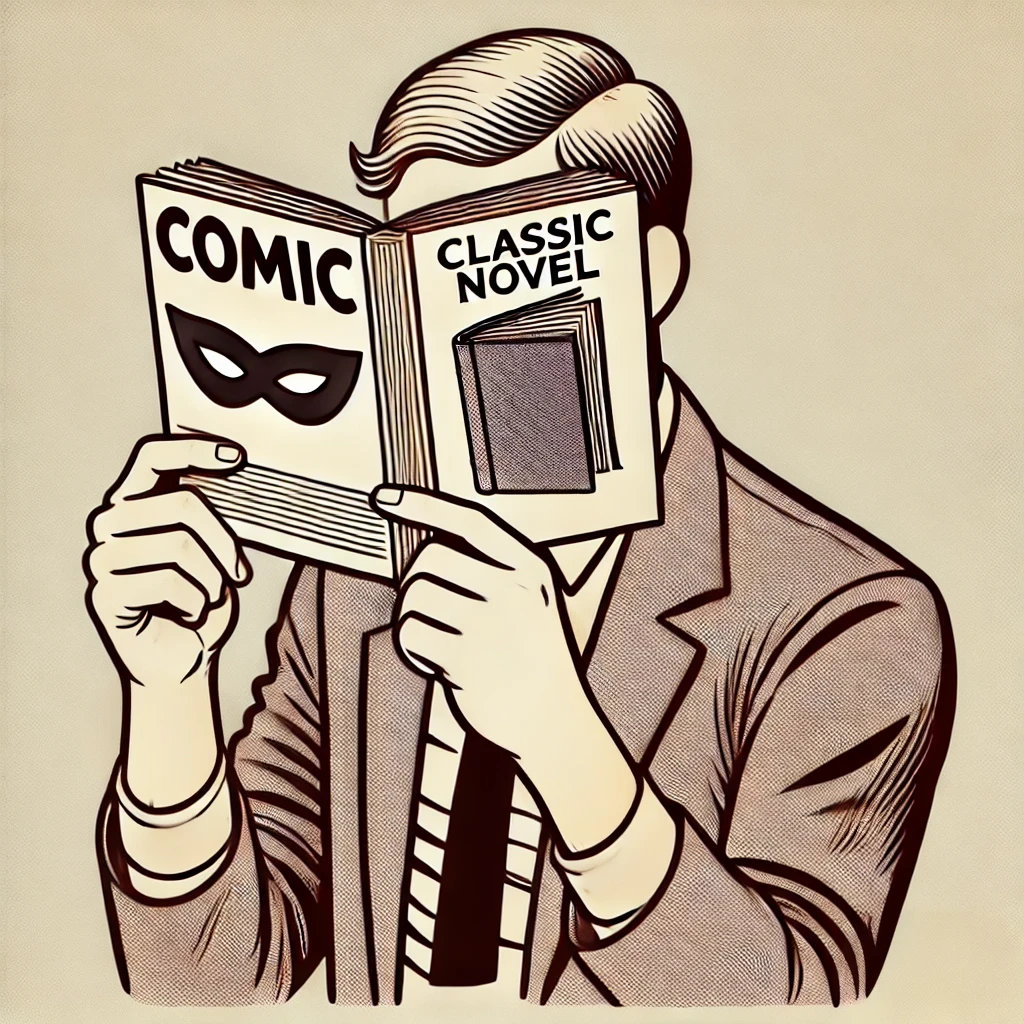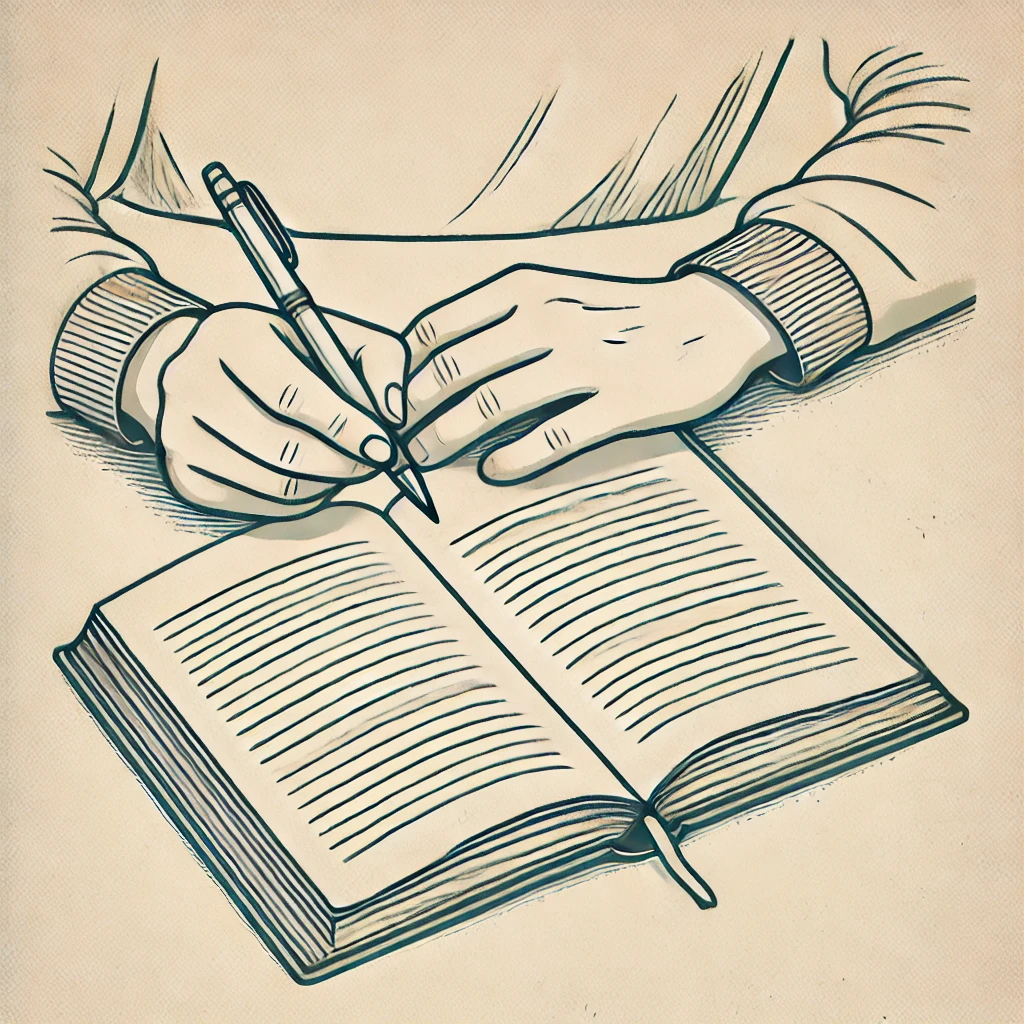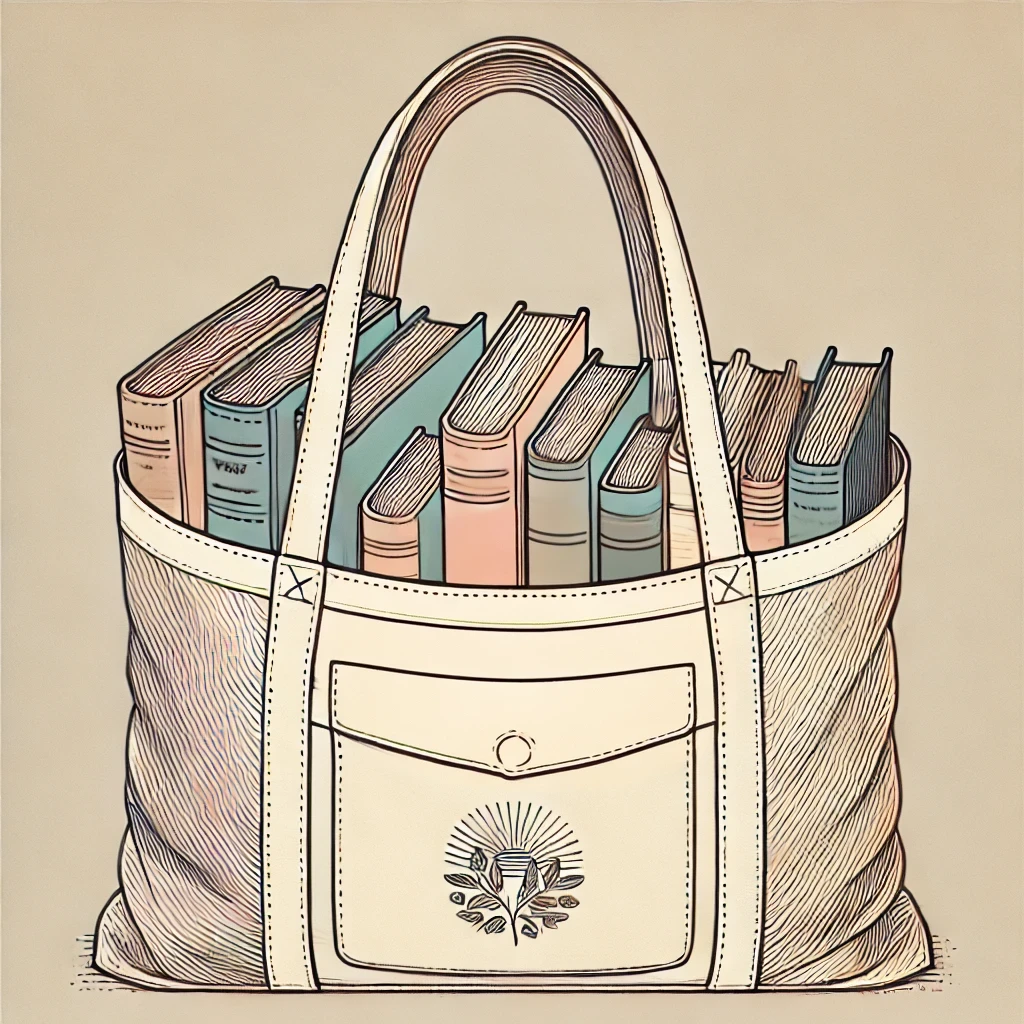how to read classic books (and learn to love them)
Embracing the literary canon to build literary skills and have more fun reading.
Why Read Classic Books?
Classic literature, often defined as works that have stood the test of time, offers a window into the human experience across different eras and cultures. The best classic books are more than just stories; they are reflections of the societies from which they emerged, providing insight into historical contexts and societal norms while also reflecting universal themes. They are among the most influential books ever produced and are often regarded as books everyone should read.
Reading classic fiction is crucial for cultural literacy. It forms the foundation of much of modern literature and thought, influencing countless aspects of language, art, and even everyday expressions. Classic books have inspired countless adaptations and references in various media, making them a key element of a well-rounded education. By engaging with these texts, readers can practice appreciating literature in all its forms, understanding the roots of contemporary narratives and ideas, and recognizing timeless issues that continue to resonate today.
Many people find classic books intimidating due to their complex language or the weight of their reputations, but overcoming this initial hesitation can lead to profound personal growth. Classic authors challenge readers to think critically, to question, and to empathize with perspectives vastly different from their own. High school English books in particular can foster a lifelong love of reading and an appreciation for the depth and richness of literary heritage

Getting Started
Understanding What Makes a Book a Classic
Classic literature encompasses works that have not only endured the passage of time but also influenced generations of readers and writers. To define “classic fiction,” it’s essential to consider the works’ historical, cultural, and literary significance. Classic literature books are often characterized by their exploration of universal themes—such as love, power, identity, and morality—that remain relevant regardless of era.
Historically, these books have reflected and sometimes challenged the societal norms and values of their time, making them vital to understanding the past. Culturally, classic literature books serve as touchstones, offering insights into the customs, beliefs, and struggles of various periods and places. Their literary significance is marked by innovative narrative techniques, profound character development, and enduring influence on subsequent works.
Examples of classic books that have stood the test of time include To Kill a Mockingbird by Harper Lee, which explores racial injustice in the American South, Animal Farm by George Orwell, a dystopian novel that critiques totalitarianism, and Pride and Prejudice by Jane Austen, a commentary on class and gender in Regency England. These are not just books assigned in high school; they are works that continue to resonate, inviting new generations to engage with the ideas they present.
Choosing the Right Classic Book for You
Selecting the right classic literature book can feel overwhelming, but by considering your interests and reading level, you can find a work that resonates with you. Exploring the genres within classic literature is a good place to begin. For those who enjoy deep character studies and social commentary, classic fiction like The Great Gatsby by F. Scott Fitzgerald might be a great fit. If you’re looking for something lighter or more nostalgic, classic children’s books like The Secret Garden by Frances Hodgson Burnett offer timeless stories that are accessible and enjoyable for readers of all ages. Additionally, classic science fiction and fantasy works, such as The Hobbit by J. R. R. Tolkien or Brave New World by Aldous Huxley, provide imaginative and through-provoking reads that continue to captivate modern audiences.
High school reading lists are a good entry point for many readers. These works, such as Of Mice and Men by John Steinbeck or Lord of the Flies by William Golding, are chosen for their readability and the important themes they explore. They are among the books everyone should read at least once, offering a strong foundation for appreciating more complex classic literature.
Whether you’re new to classic literature or revisiting it after some time, choosing the best classic books tailored to your tastes will enrich your reading experience and provide a deeper understanding of literary traditions and cultural contexts. Exploring a variety of genres and authors can also help you discover hidden gems and develop a lifelong appreciation for classic literature.
Approaching Classic Lit Confidently
Pre-Reading Strategies: Preparing for a Classic
Before diving into a classic book, it’s essential to equip yourself with effective pre-reading strategies, but first, what are reading strategies? These are techniques that enhance your understanding and enjoyment of a text. One key strategy is grasping the book context—understanding the historical, social, and authorial background that influenced the work. This knowledge helps you to appreciate the nuances and themes within the text. For instance, knowing the gender and class constraints of the Victorian era can deepen your understanding of Jane Eyre by Charlotte Brontë.
To research effectively, consider utilizing reading comprehension strategies such as summarizing key historical events or exploring the author’s biography. SuperSummary’s Background sections are an excellent resource, providing comprehensive overviews that set the stage for a more informed reading experience.
Learning how to annotate is another crucial pre-reading strategy. Annotating involves actively taking notes, highlighting important passages, and marking key themes or literary devices as you read. This process allows you to engage more deeply with the material, fostering a personal connection to the text. Practicing on a text familiar to you can sharpen skills that will transfer to classic texts. As you annotate, you might also note famous quotes from classic books that resonate with you, enriching your understanding of the text. Knowing how to annotate effectively not only aids in retention but also makes complex literature more accessible, helping you track your thoughts and insights throughout the book.
Active and Close Reading Strategies
Once you begin reading, employing close reading strategies is vital for unpacking the dense text often found in famous classic books. Close reading involves analyzing the language, structure, and themes of a text in detail. For example, when reading Hamlet by William Shakespeare, focusing on the play’s soliloquies can reveal deeper insights into Hamlet’s character and the play’s broader themes of revenge and existentialism. This detailed examination helps uncover layers of meaning that might not be immediately apparent.
Active reading strategies are equally important for maintaining engagement and enhancing comprehension. Techniques such as asking probing questions, making predictions about plot developments, and visualizing scenes can help you stay connected to the material. For example, while reading The Old Man and the Sea by Ernest Hemingway, visualizing protagonist Santiago’s prolonged struggle to catch and bring home a marlin can deepen your appreciation of the novel’s depiction of the natural world.
Additionally, incorporating SuperSummary study guides as reading companions can further enhance your analytical process. These guides offer detailed analyses, summaries, and discussion questions that help clarify complex passages and themes, making the text more approachable and engaging. By combining close reading and active reading strategies with supplemental resources, you can develop a more comprehensive understanding of classic fiction.
Overcoming Common Challenges
Classic books can present challenges, such as difficult language and archaic styles. Tackling these obstacles requires patience and specific reading strategies. Breaking down unfamiliar words or phrases into their components can often guide you toward their meaning; you may also consider using annotated editions of the text to help with comprehension. Glossaries or footnotes can provide valuable explanations and context for complex terms and historical references.
Reading with confidence is crucial to approaching classic authors. Instead of viewing their works as daunting, approach them as opportunities to explore different perspectives and gain new insights. Embrace the challenge as part of the reading journey and allow yourself to enjoy the process of discovery. Over time, this mindset can transform your reading experience into one of enjoyment and personal growth.
Another effective strategy is to watch film adaptations of classic books. While they are not substitutes for reading, these adaptations can provide visual context and help clarify complex narratives. Watching a film version of Moby Dick by Herman Melville, for example, can enhance your understanding of the characters and settings, making the world of 19th-century whaling more accessible. Discussing film adaptations with others can offer further insights and deepen your engagement with the original text. Engaging with different mediums can help bridge gaps in understanding and enrich your overall experience.

Deepening Your Appreciation
Exploring Diverse Voices in Classic Literature
Classic literature is enriched by diverse voices that offer varied perspectives on the human experience. Classic female authors like Emily Brontë and Virginia Woolf have made significant contributions to literature with works such as Wuthering Heights and A Room of One’s Own. Brontë’s novel delves into themes of passion and social constraints, while Woolf’s work addresses gender inequality and the quest for personal and intellectual freedom. Both authors provide insights into the complexities of identity, gender, and societal expectations, adding depth and nuance to the literary canon.
Classic books by Black authors, such as Invisible Man by Ralph Ellison and Their Eyes Were Watching God by Zora Neale Hurston, also hold immense cultural significance. Ellison’s novel explores the struggles of African American identity and invisibility in a racially divided society, while Hurston’s work offers a groundbreaking examination of Black female experience. These works provide powerful commentary on race, identity, and history, making them essential components of a comprehensive reading list.
Incorporating these voices into your reading list not only broadens your literary horizons but also fosters a more inclusive view of classic literature. Engaging with classic fiction by other writers of color, such as Leslie Marmon Silko’s Ceremony, or with works by LGBTQ+ writers, such as James Baldwin’s Giovanni’s Room, can also help challenge and expand traditional narratives, offering readers a richer, more varied understanding of the human experience.
Must-Read Classic Authors and Their Impact
Some classic authors have left an indelible mark on literature, shaping the way we understand and interpret the human experience. William Shakespeare, renowned for his profound exploration of human nature in plays such as Romeo and Juliet, continues to influence modern storytelling with his complex characters and timeless themes. His exploration of love, power, and tragedy has set a high standard for dramatic and poetic writing, resonating with audiences across centuries.
Charles Dickens, with his novels such as A Tale of Two Cities, provides a critical look at the social inequalities and injustices of his time. Dicken’s detailed portrayal of the struggles of the poor during the French Revolution offers a lens through which to examine the effects of social upheaval, and his works remain influential in discussions about class and reform.
Leo Tolstoy’s War and Peace presents a sweeping narrative that intertwines historical and personal conflicts, offering a comprehensive view of Russian society during the Napoleonic Wars. Tolstoy’s exploration of war, peace, and the human condition has left a lasting impact on the genre of historical fiction.
Authors like John Steinbeck, James Joyce, and Gabriel García Márquez have also profoundly shaped contemporary literature. Steinbeck’s The Grapes of Wrath presents a poignant depiction of the Great Depression and the plight of displaced families, reflecting social and economic struggles. Joyce’s Ulysses revolutionized narrative techniques with its stream-of-consciousness style, pushing the boundaries of Modernist literature. Márquez’s One Hundred Years of Solitude blends magical realism with historical narrative, offering a unique perspective on Latin American culture and history.
These key works remain relevant and influential, reflecting and shaping ongoing discussions about society, human nature, and literary form. Their contributions continue to inspire and challenge readers and writers alike.
The Power of Classic Fiction: Books That Changed the World
Certain classic works have had a profound impact on society and culture, often shaping and reflecting the political and social climates of their times. George Orwell’s 1984 offers a chilling dystopian vision of a totalitarian regime, critiquing political oppression, surveillance, and the erosion of individual freedoms. Similarly, Ray Bradbury’s Fahrenheit 451 presents a society where censorship and anti-intellectualism prevail, raising urgent questions about the role of literature and the importance of free expression.
Fyodor Dostoevsky’s Crime and Punishment delves deeply into themes of morality, guilt, and redemption, challenging readers to confront their own perceptions of justice and human nature. Dostoevsky’s exploration of the psychological turmoil of his protagonist offers profound insights into the complexity of moral decision-making and the search for redemption.
These influential books not only reflect the concerns of their respective eras but also resonate in contemporary discussions about political and social issues. Their enduring relevance highlights the power of classic fiction to provoke thought, inspire change, and provide a mirror to the ongoing struggles of human society. By engaging with these works, readers can gain valuable perspectives on the challenges of their own time and the potential for future transformation.
Classic Literature in Today’s World
Relevance of Classic Books in Modern Times
Classic literature continues to offer valuable insights into modern issues by reflecting timeless human experiences and societal challenges. Books like Emma by Jane Austen explore themes of social class, personal integrity, and the constraints imposed by societal expectations. These themes remain relevant today as discussions about inequality and personal values continue to evolve. Austen’s keen observations on class and character resonate with contemporary readers navigating similar social dynamics.
Similarly, Toni Morrison’s Beloved addresses the legacy of slavery and its enduring trauma, providing a powerful lens through which to examine ongoing conversations about race, history, and collective memory. Morrison’s exploration of the psychological and cultural impacts of slavery offers profound insights into the persistent effects of historical injustices and the struggle for reconciliation and healing.
The timelessness of these themes explains why such famous classic books consistently appear on lists of the best books of all time. Their ability to resonate across generations underscores their importance, as they offer readers a window into both their own experiences and the lives of others. This relevance not only helps maintain the classics’ place in contemporary literary discourse but also ensures they remain a vital part of personal reading lists, continuously offering new perspectives and reflections on the human condition.
Integrating Classic Literature into Your Reading Life
Incorporating classic literature into your reading routine can enrich your literary experience and offer fresh perspectives. Start by setting achievable goals, such as reading one classic book each month or delving into a specific genre. Practical tips include utilizing reading guides to navigate challenging texts and joining book clubs or discussion groups to engage with others about classic works. These interactions can provide new insights and open up new ways of appreciating literature.
Finding enjoyment in classic literature can vary depending on your stage in life. Younger readers might connect with the coming-of-age themes in books like The Catcher in the Rye by J. D. Salinger, while older readers may appreciate the nuanced social critiques in works by Mark Twain or William Faulkner. Revisiting classics at different times can also reveal new layers of meanings and offer renewed engagement with familiar texts.
Exploring less commonly read classics can further expand your literary horizons. Consider diving into works by Isaac Asimov, known for his science fiction classics, or delve into A Portrait of the Artist as a Young Man by James Joyce for a unique perspective on Modernist literature. Exploring classic books beyond the well-trodden path can provide fresh insights and keep your reading life dynamic and engaging.

Embracing the Journey
Reading classic literature offers numerous benefits, from deepening your understanding of historical and cultural contexts to enhancing your appreciation of literary craftsmanship. Classic books often explore universal themes such as love, power, and morality, providing insights that remain relevant across time and place. Engaging with these texts can enrich your worldview, improve your analytical skills, and foster a lifelong love of reading.
As you embark on your journey with classic fiction, approach it with confidence and curiosity. Start with books that intrigue you and gradually expand your reading list to include a diverse range of authors and genres. The value of classic literature lies not just in the stories themselves but in the personal growth and understanding that come from reading them.
The lifelong value of classic books is immense. They serve as a foundation for understanding literary traditions, offer perspectives on the human condition, and provide enjoyment through their timeless storytelling. Embracing classic literature is not just about reading old books but about engaging with ideas and experiences that continue to shape our world. Enjoy the journey, and let these enduring works inspire and challenge you along the way.